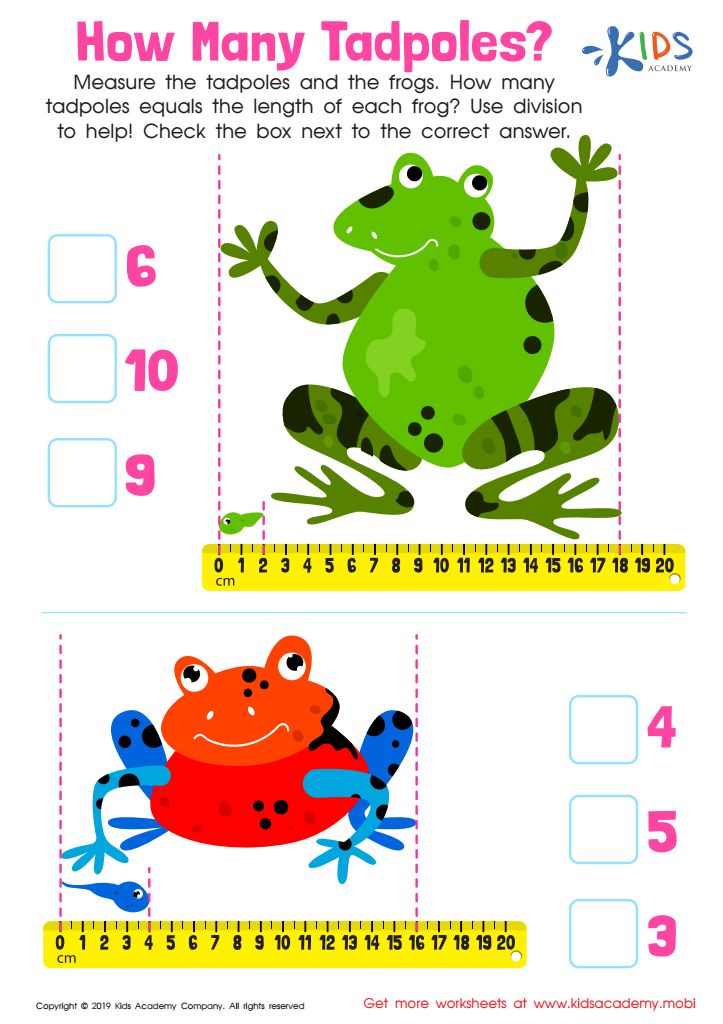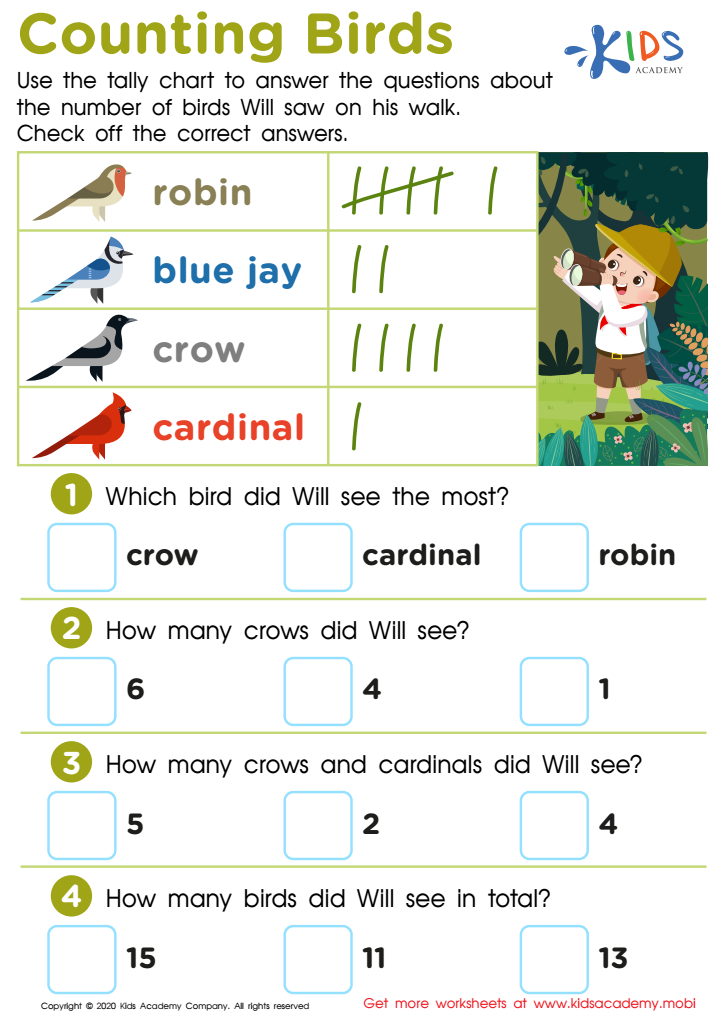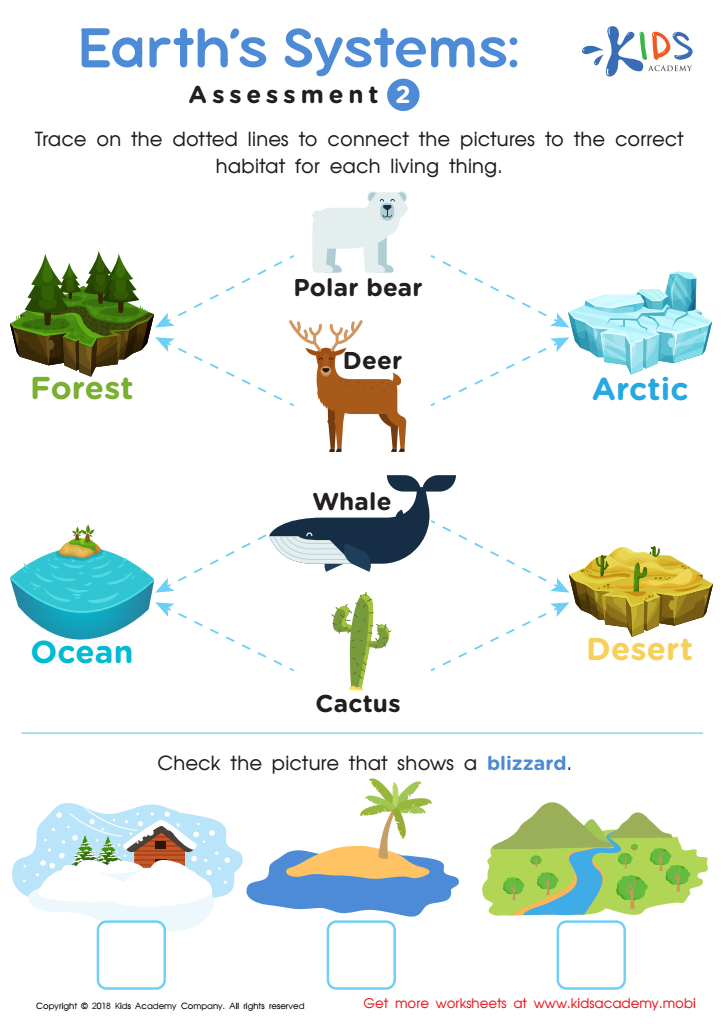Basic Addition Science Worksheets for Ages 4-8
4 filtered results
-
From - To
Discover our engaging Basic Addition Worksheets designed for children aged 4-8, perfect for nurturing foundational math skills! These printable resources introduce simple addition concepts through fun, interactive activities that encourage early learning. Each worksheet features colorful illustrations and relatable themes, making math enjoyable for young learners. As kids practice their addition, they enhance critical thinking and problem-solving abilities in a stimulating environment. Our worksheets are ideal for classroom use or at-home practice, ensuring a comprehensive understanding of basic math. Start your child's mathematical journey today with our user-friendly, age-appropriate worksheets that lay the groundwork for future success in math!


How Many Tadpoles Worksheet


African Wildlife: Giraffe Worksheet


Counting Birds Worksheet


Earth's Systems: Assessment 2
Basic addition skills are crucial for children aged 4-8 as they lay the foundational building blocks for mathematical understanding. This early stage of cognitive development is vital for grasping not just mathematics, but also critical thinking and problem-solving skills that will be useful throughout their lives. Understanding addition helps young learners develop number sense, which is essential for tackling more complex math concepts later on.
Encouraging an early interest in addition also fosters a positive attitude toward learning. Engaging activities can make math enjoyable, promoting a lifelong love for learning. Parents and teachers can create a lively environment that supports exploration and discovery, helping children associate math with fun rather than frustration.
Moreover, strong addition skills are linked to greater academic achievement. Children who master basic math operations early are more likely to excel later in school, as these skills are foundational for other subjects such as science and finance. Additionally, as these young learners improve their addition skills, they gain confidence, self-esteem, and a sense of accomplishment, which promote overall emotional growth.
In summary, prioritizing basic addition skills at ages 4-8 is essential for a child's academic success, emotional development, and enduring love for learning.
 Assign to My Students
Assign to My Students



















